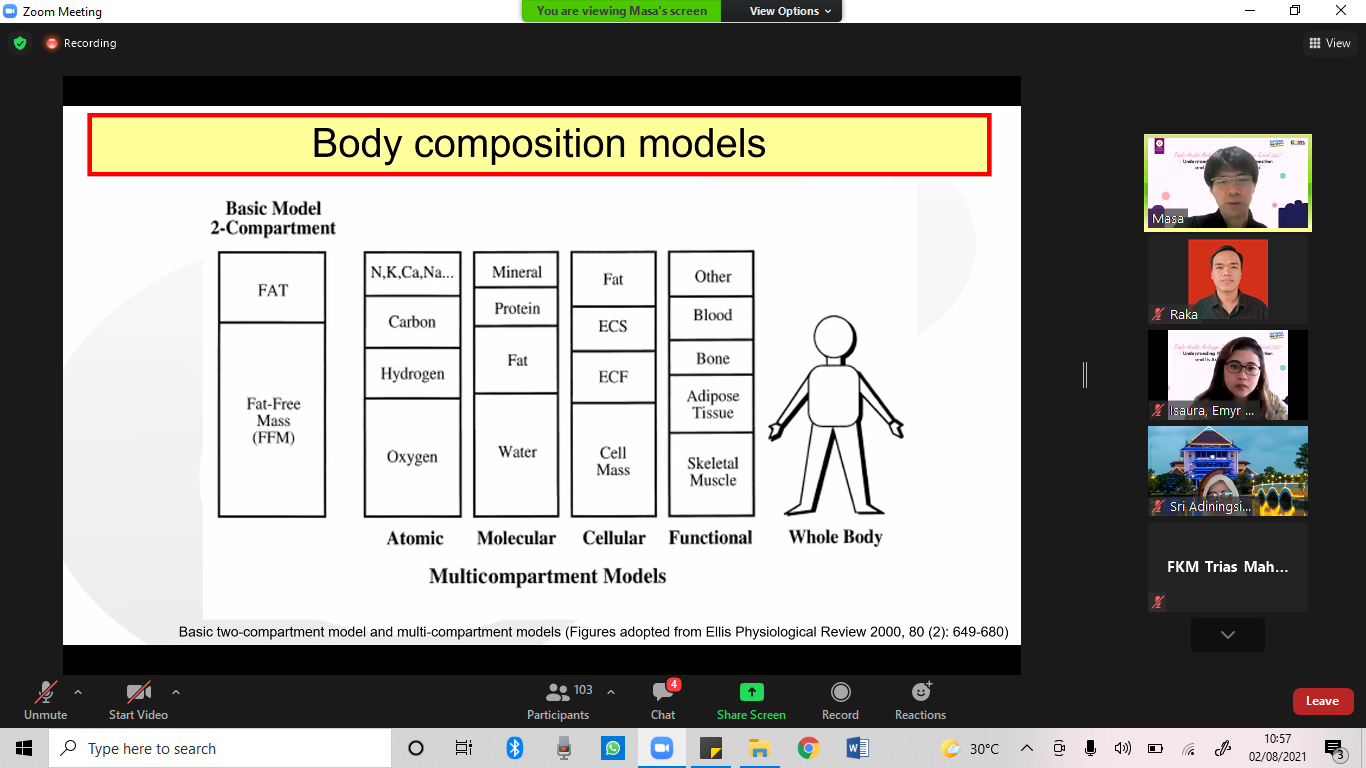UNAIR NEWS – The Department of Nutrition, Faculty of Public Health (FKM) Universitas Airlangga (UNAIR) held a virtual course event entitled “Understanding Human Body Composition and Its Assessment Techniques.” The event was held three days from Monday, August 2, to August 4, 2021.
On that occasion, FKM Vice Dean III, Trias Mahmudiono S.Km, MPH (Nutr.), Gcas, Ph.D, delivered his remarks. The FKM leadership revealed that the event is a part of the 3rd SDGs program: Good Health and Well-being.
Universitas Airlangga is currently trying to increase its impact on SDGs. “This series of summer course events is nothing but a form of our endeavor as a part of UNAIR,” he explained.
In this virtual course, Prof. Masaharu Kagawa., BSc(Hons) Ph.D RPHNutr ISAK from Kagawa University, Japan, explained about “The Composition of the Human Body and Its Physiology.”
Prof. Masa said that the body consists of several essential components, including oxygen, hydrogen, carbon, water, fat, protein, minerals, and other functional compositions such as blood and bones.
The atomic composition consisting of oxygen, carbon, and hydrogen is a substance that makes up more than 90 percent of the human body mass. “It consists of 65 percent oxygen, 18 percent carbon, 10 percent hydrogen, and 3 percent nitrogen,” he said on Monday, August 2, 2021.
Besides the human body, similar cases are found in some animals such as mice, dogs, rabbits, cats, pigs, and monkeys.
He also explained that water is the most common inorganic compound in the body, consisting of intra and extracellular fluid (including blood plasma and spleen, ed). “The composition of water is quite large, between 60 to 70 percent of body mass,” he said.
Furthermore, Prof. Masa mentioned protein, as a component, is no less important. The compound is known to make up more than 20 percent of body mass. Its main function is to provide strength and organize the body.
Regarding fat, Prof. Masa said that obesity is one of the related diseases. The average ideal fat composition in men is 15-20 percent, while in women is 20-30 percent. More than that, a person can be considered obese.
It is certainly a health risk. “If left unchecked, obesity will only get worse because it is also related to the gut microbiome and metabolic risk,” he added.
In the end, Prof. Masa emphasized that the basic physiology of body composition is very important to understand as body composition is closely related to growth and health problems.
In total, more than 100 participants from Japan, Malaysia, and Indonesia attended the event. Previously, the Department of Nutrition also held a similar event. A nutritionist, Professor Loh Su Peng, from Universiti Putra Malaysia, gave a presentation on “Antioxidants and Functional Foods” from Monday, July 26 to July 29, 2021. (*)
Author: Erika Eight Novanty
Editor : Khefti Al Mawalia (YA/AP)





